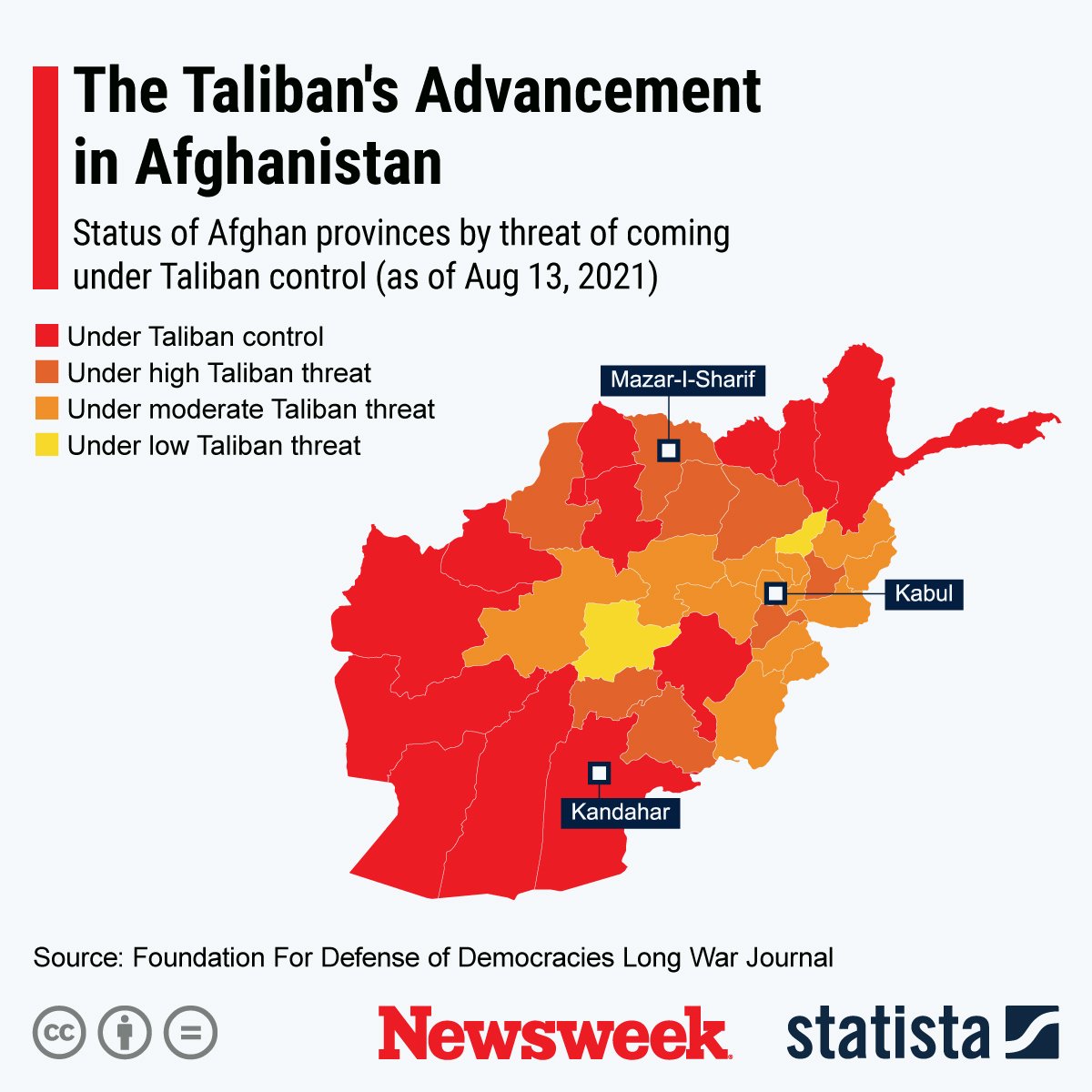CNN's Jim Acosta claimed on Friday the Biden administration had been "caught by surprise" by the rapid advance of Taliban forces in Afghanistan who now appear to threaten the capital Kabul.
Acosta discussed the recent fighting and the Taliban's territorial gains with CNN host Fareed Zakaria and both expressed surprise at how quickly the situation in the country is deteriorating
The Taliban has now gained control of vast swathes of Afghanistan, including the cities of Kandahar and Herat, which are the two largest after Kabul. The U.S. and U.K. have sent reinforcements to the capital to assist with the evacuation of personnel.
Acosta asked Zakaria: "Why do you think the Biden administration was caught by surprise in all of this?"
"They won't admit it, but they were," he said.
Zakaria replied: "I think everyone was caught by surprise at the extent to which this has collapsed."
"The most important thing to look at in all of this, Jim, is when the Taliban has been taking these cities - Kandahar, Kunduz, Herat - there've been very few casualties. What does that mean?" Zakaria said.
"The Afghan army is not actually fighting," he said. "It is melting away. That is a 300,000-person army, trained for 20 years with, as you say, tens of billions of dollars of American money, with an air force. And it just doesn't fight. It melts away."
Zakaria said that the U.S. strategy had been to stabilize Afghanistan by destroying the Taliban and that policy had not worked. He also noted he was speaking with the benefit of hindsight and wasn't sure what he was saying about the matter 20 years ago. The U.S. invaded Afghanistan in 2001 following the 9/11 terror attacks.
"It does seem as though the Taliban cannot be defeated in that way," Zakaria said. "They represent a part of Afghan society. They represent a part of the Pashtuns in Afghanistan - the largest ethnic group - and, you know, what they have is passion, tenacity and will.
"It does remind me, Jim, of South Vietnam," Zakaria went on. "We stayed there for years and years - 500,000 American troops, spent billions of dollars. And at the end of the day, if you talk to the military people on the ground, what they would tell you is, the one thing we lacked was the South Vietnamese army just wouldn't fight."
"Well, that's the problem here. The Afghan army just won't fight," he said.
Acosta said: "It's maddening because we seem to have bought a military for the Afghan security forces and now that's going to belong to the Taliban, it seems."
"The U.S. Embassy in Kabul is instructing people to destroy sensitive materials. That seems to be an admission that they expect Kabul to fall," he went on.
The graphic below, provided by Statista, shows the Taliban's advancement in Afghanistan as of August 13 based on data from the Foundation for Defense of Democracies' (FDD) Long War Journal.

"I think you'd be crazy not to be planning for that," Zakaria replied. "As you point out, you're not hearing from the president of Afghanistan. You're not hearing about counteroffensives. You're not hearing about regrouping."
Zakaria explained that some of the cities recently taken by the Taliban had also fallen to them before and been taken back and he wondered whether the Afghan government had a strategy to retake the cities. Acosta asked him about President Joe Biden's handling of the situation.
"He didn't anticipate this happening," Acosta said and asked whether Biden should have prepared the American people for the "horrific scene" of the Taliban taking over Afghanistan.
"This was a slow-motion disaster in the making in the sense that [former President] Donald Trump really took the most important action, which was he drew down American troops significantly from I think about 15,000 to 3,000 and he began negotiating with the Taliban," Zakaria said.
"That created this unreal atmosphere where people thought things had gotten stable. They hadn't. The Taliban just stopped fighting against the Americans because they were waiting to negotiate their withdrawal. Once we started to withdraw, the Taliban ramped up again," he said.
"Biden should have prepared people for the reality that the Taliban, once it started to fight, was going to gain the upper hand," Zakaria said.
Newsweek has asked the White House for comment.

Uncommon Knowledge
Newsweek is committed to challenging conventional wisdom and finding connections in the search for common ground.
Newsweek is committed to challenging conventional wisdom and finding connections in the search for common ground.
About the writer
Darragh Roche is a U.S. News Reporter based in Limerick, Ireland. His focus is reporting on U.S. politics. He has ... Read more





